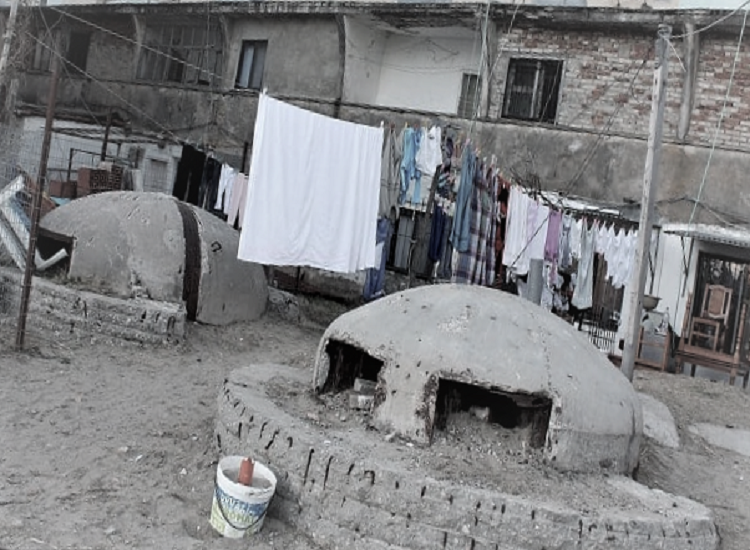Dashnor Kaloçi
Second part
Memorie.al/ publishes some archival documents extracted from the Central State Archive in Tirana, (the fund of the former Central Committee of PPSh), which belong to the year 1979 and are part of a file where there is also a record of the daily meeting of the secretaries of the Central Committee of the PPSh, chaired by Enver Hoxha, attended by: Hysni Kapo, Ramiz Alia and Hekuran Isai, where it was taken into deep analysis and discussed about the training of the Brigade of First, which, according to Enver, had completely failed, not meeting the objectives set by the Ministry of People’s Defense led by the minister, Mehmet Shehu. In the meeting in question where the three secretaries of the Central Committee of the PPSh discussed, Enver Hoxha, after criticizing the work done by the two deputy ministers of People’s Defense, Maliq Sadushi and Veli Llakaj, who had requested that the exercise be repeated, with the march of the First Brigade, (which he categorically did not approve), suggested to Hysni Kapo, taking into account the advice of doctors, regarding his health, as General Commissar of the Army, to find time and to go to meetings, with the wards and large military units, as the Army needed his thoughts and his word. Similarly, in the daily meeting with the secretaries of the Central Committee of the Party, which was held on February 9, and 12, 1979, Enver Hoxha, from the position of Commander-in-Chief of the Army, also accused Mehmet Shehu.
Continues from last issue
The secret document with the minutes of the daily meeting of the Secretaries of the Central Committee of the PPS, where Enver Hoxha analyzed the failure of the 1st Brigade March training
February 9, 1979
After being informed about the training of the First Brigade, Comrade Enver Hoxha took the floor.
COMRADE ENVER HOXHA: I read the report that talks about this year’s training and, as I told Mehmet, I am not at all satisfied with what has been done; the program has not been completed as planned. That’s right, he answered, but this year the army has also taken over the fortifications. But these, as you know, are all planned, so what he says has no justification. Everything, as everywhere in the army, is planned, but we must take great care to plan everything correctly, and the most important thing is to carry out the training plan completely, just as the fortifications and every task must also be carried out in order Other.
What happened should be a lesson and everything should be resolved calmly. Mehmeti told us that he had voted on the measures he took and that everyone raised their hands and expressed that they agree with those measures. Yes, it is important to analyze the work well, to find out the reasons why it is the same. In the meetings for this purpose, people should deepen; they should take place in peace, because it is not a matter of putting measures to the vote. It must be worked with mind and with great care.
COMRADE ENVER HOXHA: I read the report that talks about this year’s training and, as I told Mehmet, I am not at all satisfied with what has been done; the program has not been completed as planned. That’s right, he answered, but this year the army has also taken over the fortifications. But these, as you know, are all planned, so what he says has no justification. Everything, as everywhere in the army, is planned, but we must take great care to plan everything correctly, and the most important thing is to carry out the training plan completely, just as the fortifications and every task must also be carried out in order other.
What happened should be a lesson and everything should be resolved calmly. Mehmeti told us that he had voted on the measures he took and that everyone raised their hands and expressed that they agree with those measures. Yes, it is important to analyze the work well, to find out the reasons why it is the same. In the meetings for this purpose, people should deepen; they should take place in peace, because it is not a matter of putting measures to the vote. It must be worked with mind and with great care.
COMRADE HYSNI KAPO: Even yesterday we talked to each other, Comrade Enver, as far as we were informed about the training of the First Brigade, but you, speaking to us here today about these problems, broadened our horizon even more.
COMRADE ENVER HOXHA: What should interest us, the leadership, should be the big problems. I don’t ask you to deal with small things. In addition, for serious events that are proven, either in the army or anywhere else, the expression “let’s not disturb Enver” should be deleted from the notebook.
No, friends, it is not at all right to think like this from either Mehmet or Kadri. If I don’t have to worry about these big problems, then why should I?
COMRADE HYSNI KAPO: Not you, Comrade Enver, there is no discussion, but I also asked them first, to tell us, also, what they think about them.
COMRADE ENVER HOXHA: Let what you say be done, I just want to say seriously that you must take care to take care of yourself. You should not worry too much about what happened in the First Brigade, because, as in any situation, the leader must be calm. What happened must surely be fixed and there is no doubt that the work in the army will be strengthened.
I am fully convinced that this will not happen again in the future. Of course, small incidents will prove to be true again, and to such an extent as they did in this year’s training of the 1st Brigade, from now on we must take measures so that they do not resemble us again and certainly will not they resemble
The point is that, as I told you, you now take care of yourself, increase your physical strength and organize your work so that your subordinates learn why they should inform you, that is, about the main issues and report to you clearly and concisely. .
They themselves should try to kill the mind more in this direction and reflect on what happened to find the real causes and propose what should be done to cure the bad situation that exists.
We have all the forces and opportunities for this, both materially, but especially morally, politically and ideologically. It’s just that we have to think deeply that with all the multitude of people, staffs and officers, political commissars and party secretaries that we have, we should work well to make them aware to implement all the tasks to the end.
COMRADE HYSNI KAPO: Regarding the implementation of the health regulations, which you told me, Comrade Enver, I am making an effort and I am trying to adhere to both those and other orders from time to time, judging that, while the Party has done all this for me, I have the duty to implement them.
COMRADE ENVER HOXHA: This is not just your personal interest. Along with this is the interest of the Party. These two sides are closely connected, the personal and the general.
COMRADE HYSNI KAPO: That’s how I understand this issue, Comrade Enver, that’s why I’m trying to adhere to medical norms, I don’t abuse in this direction and I’m determined to apply them meticulously. The doctors also advised me that, if I followed the rules they recommended, I would automatically be able to increase my working hours.
COMRADE ENVER HOXHA: Surely you will add it. Now you yourself are aware of this and, when a person is aware that this or that norm should be applied, I think there is no need for us to mention them.
COMRADE HYSNI KAPO: The other issue I wanted to point out, Comrade Enver, is that last year I was informed about the work being done in the army, but I could not personally go to the units, except in rare cases, when they were done great analysis. Now the order you gave me, I will keep in mind, so that on some important occasions I go to the meetings of the Party in the army, after first determining for what purpose I should go.
Now I am concerned about one thing, which you also emphasized at the last Plenum of the Central Committee and which must be taken into account not only by the field Party organizations, but also by those of the army: neither let us fly in euphoria, nor do not fall into pessimism.
In fact, in the army one can see bias from this point of view. I am convinced that in the military cadres, both in the commands and in the Party committees, there is bias in the reporting of issues. The truth is that the Ministry of People’s Defense issues, both shortcomings and achievements, come very well rounded. Regarding the work here, in the apparatus of the Central Committee, with the sector for the army, as we have discussed, the instructors for the military side go into a lot of detail when flaws and weaknesses emerge.
This is a good thing for them, because this way they are able to recognize the flaws, but for those they work with, it sometimes creates a bad situation. That’s why I told them to hold on even after the positive experience. I even think that this should be grasped more firmly and better. So there is a need for both the instructors of the Central Committee apparatus and the Party workers in the army to improve the style and method of their work.
From the data brought to us by the instructors, as well as from those that come to us through the command line, it appears that there is euphoria and a tendency to embellish matters. This has attracted my attention a lot and I am concerned, that here we are dealing with issues of concept.
COMRADE ENVER HOXHA: It is certainly a matter of concept, that, although it is said that even in the army as everywhere the Party leads, Party workers feel inferior to some military cadres and especially to the commanders. Therefore, this situation must be changed and put on the right path.
COMRADE HYSNI KAPO: Sometimes there are some issues related to wrong concepts that have caught my attention. I have called the deputy ministers of the Ministry of Defense for this purpose, for the reason that the military leaders, such as they are there, cooperating with our comrades in the apparatus, have shown some thoughts that they have presented to Mehmet, without first consulting with us. They are matters related to the decisions of the Central Committee, the Political Bureau and the Defense Council.
For example, in matters of the organization of our army, it is said that there is no commander without a commissar. Thus, next to the battalion commander, there must also be a battalion political commissar, next to the commander of the free school there must also be a political commissar of the free school, etc.
However, when the organics of the free schools or the battalions are made, the leading cadres in the ministry present the organics to Mehmet in opposition to these guidelines, using the pretext that there are no commissar cadres.
How is it possible that the battalions do not have commissars in their ranks, at a time when there are not only commanders, chiefs of staff, chiefs of intelligence, but also two or three others of a military profile?
This explains a whole concept, and here we are talking especially about battalions, without talking about companies and free schools, which are not remembered at all. When we have commanders in free schools, how can we not have commissars? In the free schools, there must be commissars, for the reason that all our military people gather in them.
COMRADE ENVER HOXHA: Mehmeti should not accept such proposals from the ministry staff.
COMRADE HYSNI KAPO: The leadership of the Ministry of Defense does not take into account the decisions of the Central Committee and the Political Bureau and they do not signal to him regularly about their implementation, whether they are implemented correctly or not.
They have a duty to signal it. Their defects in this regard show that they still have incorrect concepts. For this, we have talked with the colleagues of the Ministry of People’s Defense, with the deputy ministers.
COMRADE ENVER HOXHA: Keep in mind that old concepts, comrades, do not disappear in three or four years. The work that the Party is doing in the army these years, of course, has had its own positive effect, but before a practice of 30 or so years of work on a road, during which changes and improvements have really been made, we have also been introduced to concepts that are not rights from the Soviets, etc., which are certainly not so easily hidden. You can make as many reports as you want against such concepts, it is important that the Party itself fights against foreign concepts.
The party should teach people, point out to them strongly what they are wrong. It should not be allowed for the commander to insult the subordinate. A remark can be made to him. Even the subordinate cannot address the commander with inappropriate words. But who will teach the way to behave to the masses of our soldiers? The Party will definitely do this, in order to strengthen mutual love and respect between superiors and subordinates, both now and in times of war. Therefore, these issues are important and should be put on the right track.
COMRADE HYSNI KAPO: Another issue I wanted to point out, Comrade Enver, is still a matter of concept. As you said, the command of the army should be responsible for the management and operation of the free military school, but the Party bodies in the field should also deal with them.
I think there should be close cooperation between the army and the district Party committee on the issue of free military schools as this cooperation is not up to par. There was a difference between some free schools having their own military command as opposed to those run by battalion commanders of the active army covering the territory where the free schools operate.
Those that had their own command did better, while the others that were under the jurisdiction of the active military department, if they were not directly directed by his command, did not go well for us.
ENVER HOXHA: These people must have one thing clear: the main and most important thing for us is the entire mass of the people’s army, the entire force that is included in the free schools and not only the active army.
Therefore, the commander, deputy commander, commissar or secretary of the Party committee of the ward, who are related to the Free School, must take turns to perform the task of military leadership in this school, they must constantly think about this school and be connected with him, going there sometimes the commander, sometimes the commissar, sometimes the chief of staff, who in turn will stay and direct the work at the free school.
This way of working that is done now, is not a flexible, revolutionary work, it is not efficient to raise all this reservist force to a high political-ideological level, at the same time as a military one. Many times the cadres become slaves to the old work routine.
I have said many times that the work of the Party is a matter of great importance, multifarious and that does not tolerate routine. If we continue with a routine activity, we will not bring anything to the street. The work of the Party must be flexible, smart, lively, and revolutionary; it requires that thoughts be developed through debates. Memorie.al
The next issue follows




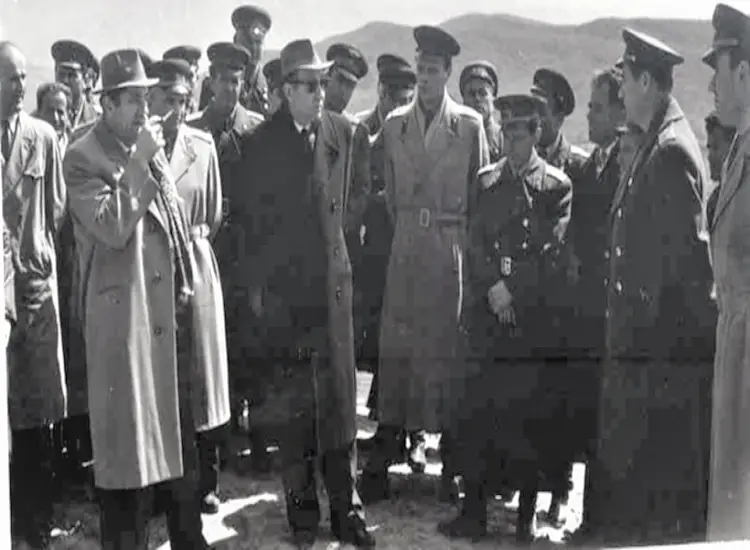
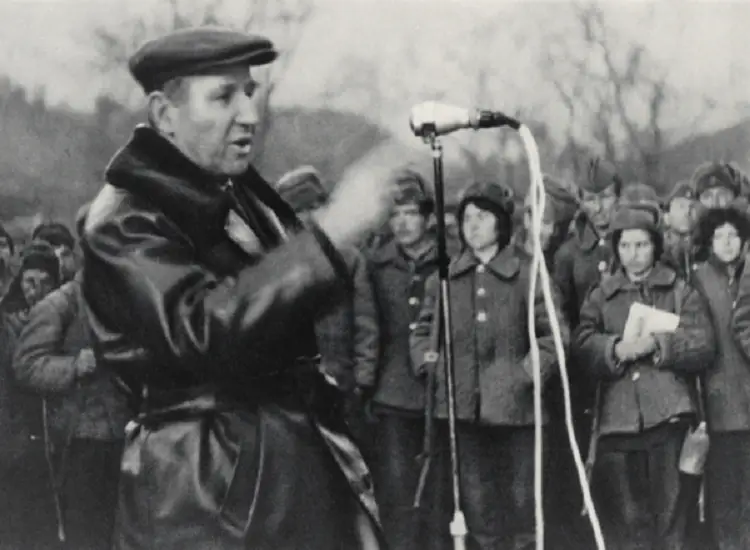

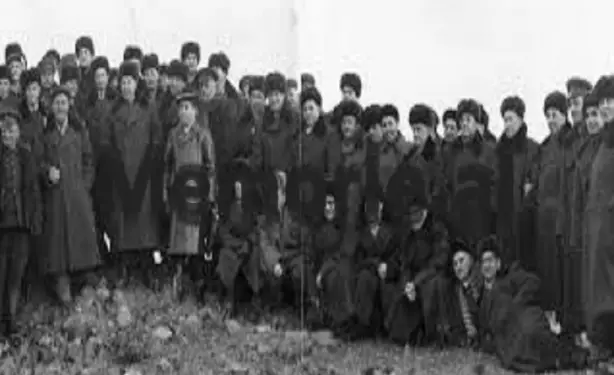

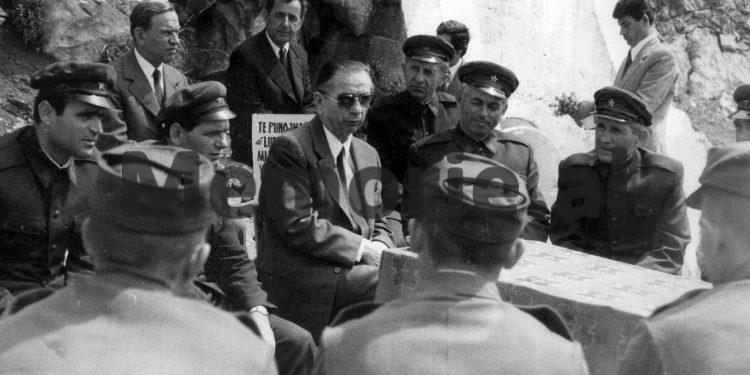



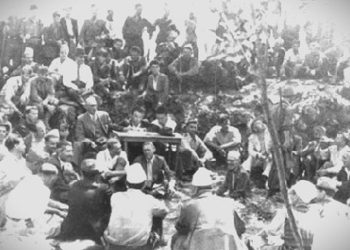
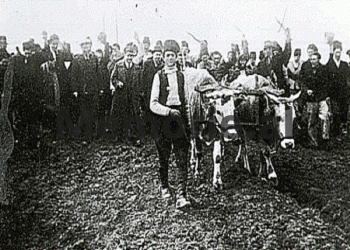
![“They have given her [the permission], but if possible, they should revoke it, as I believe it shouldn’t have been granted. I don’t know what she’s up to now…” / Enver Hoxha’s letter uncovered regarding a martyr’s mother seeking to visit Turkey.](https://memorie.al/wp-content/uploads/2026/01/Dok-1-350x250.jpg)
